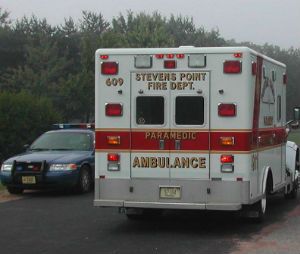Updated April 3, 2015
Share these tips with new police officers to acquaint them to the ambulance and EMS operations
Recently a law enforcement FTO and a new officer came to the station. The FTO asked me for a “show and tell” of the ambulance should the ambulance crew ask the new officer for help at an incident. We spent the next few minutes on a 10-cent tour of the ambulance.
After having a bit more time to think about the task, this is what I would want a new police officer to know about the ambulance and how they can help us during an emergency, and generally what we can tell them.
1. Thanks for your service.
Most importantly, thanks for doing what you do. I really admire the work of law enforcement. Any help provided to EMS is appreciated.
2. Just ask.
We probably won’t need your help often and it is okay if you forget some of the things I am about to explain. If you forget the location of the suction, don’t know what an Ambu bag is, or how to turn on the lights in the patient care compartment, just ask.
3. Stay safe.
After my own safety, all of my partner’s safety is really important to me. We have lots of safety equipment in the ambulance – gloves, goggles, and gowns – please use it.
4. Look out for me.
You are well trained to recognize danger. If you see something hazardous — like a knife, gun, or needle — or worrisome patient behavior, don’t assume I see it. You can always give me a heads-up.
5. All the backboard stuff.
If I ask for a backboard, I really mean the backboard, straps, head blocks, and a blanket.
6. Helping with the cot.
If you help a bring the cot to the patient, don’t lower it all the way to the lowest setting. A loaded cot in the lowest setting is hard to lift.
7. Do important things.
If the patient has severe bleeding, no pulse, a compromised airway, or inadequate breathing (CAB life threats), while you wait for the ambulance to arrive, begin to treat those problems with the tools - tourniquet, AED, naloxone - and training you have.
What else would you add to an ambulance “show and tell” for a new police officer?












